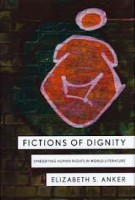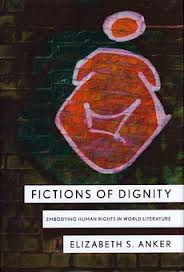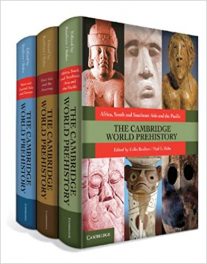 Author: Elizabeth Anker
Author: Elizabeth Anker
Publisher: Cornell University Press
Book Review by: Paiso Jamakar
Over the last fifty or so years, much has been written about human rights issues.
In this book, Elizabeth S. Anker examines four works of fiction that deal with abuse of people and denial of their basic human rights.
She shows how and why those in power oppress innocent people and deny them their human rights based on their class, disability, gender, race, or “species membership.”
Each of the novels Anker examines in this work point out to limits and paradoxes relating to human rights. She points out in particular the obstacles, controversies, disappointments, and human rights abuses in these four novels:
- Salman Rushdie’s Midnight’s Children – addresses the obstacles to incorporating rights into a formerly colonized nation’s legal culture
- Nawal El Sadawi’s Woman at Point Zero – takes up controversies over women’s freedoms in Islamic Society
- J.M. Coetzee’s Disgrace – considers the disappointments of post-apartheid reconciliation in South Africa
- Arundhati Roy’s The God of Small Things – confronts an array of human rights abuses widespread in contemporary India.
Anker asserts: “Each of these literary case studies further demonstrates the relevance of embodiment to both comprehending and redressing the failures of human rights, even while those narratives refuse simplistic ideals or solutions.”
Further emphasizing the importance of “embodiment” in decreasing the instance of human rights abuse, she points out to two of the many “paradoxes that especially bedevil what I describe as “liberal” articulations of human rights.”
In other words, I think what she is saying is that ambivalence should be removed; and what constitutes human rights should be defined clearly and unambiguously, especially in international law and in the national laws of law-abiding countries, as well as in other sectors of society such news reporting in the mass media and in literature. She elaborates on these two difficulties:
1. “The first one of these paradoxes emerges from the contradictory status of the body within dominant definitions of human rights. As I will show, liberal human rights discourses and norms exhibit a profound ambivalence toward embodiment. Not only are they underwritten by the dual fictions of human dignity and bodily integrity, but they yield a highly truncated, de-corporealized vision of the subject – one that paradoxically negates core dimensions of embodied experience.”
2. “The second paradox I examine in this book extends from a problem inherent in the very language of human rights. In the present geopolitical climate, the discourse of human rights has grown distant from the early hopes that forged it, becoming an obstructionist idiom that increasingly fulfills the opportunistic ends of selfish actors.”
She points out that human dignity has become the foundation of human rights. Most nations have over time respected the importance of human dignity and recognized that human dignity is an essential component of human life, she shows, as demonstrated in the paragraph below.
She writes that dignity was spelled out clearly as the basic foundation for human rights in Preamble of the 1948 Universal Declaration of Human Rights, which states “Whereas recognition of the inherent dignity and of the equal and inalienable rights of all members of the human family is the foundation of freedom, justice and peace in the world.”
This is a well written, analytical and prescriptive book by Elizabeth Anker. She provides workable solutions on how we can overcome the failures of human rights. She examines four novels and shows how lives are excluded from human rights protections along the lines of class, disability, gender, and race; why we’ve failed, and what we specifically need to do, to avoid those failures.
Elizabeth S. Anker is Assistant Professor of English at Cornell University.







